PREFACE
The essays presented here differ from their predecessors in my previous collection, On Russian Music (University of California Press, 2009), to which this book may seem a sequel. The contents of that book were mostly written for newspapers and magazines, general circulation publications that address current events and topical concerns. Among the current events affecting Russian music at the time were preeminently the three big skirmishes whose battlegrounds I surveyed in the earlier books introduction and somewhat nostalgically revisit in the introduction to this one. Having done so, I do not expect to visit them again. (But, of course, one never knows.) The earlier collection included a number of book and record reviews as well, which are by definition opinion pieces and often therefore contentious.
This volume hawks a different sort of product, originating like the earlier pieces from my perch within the academy, but mainly intended for professional audiences and readerships and therefore displaying a more measured, more judiciouswell, all right: a more academictone and style. They are products of a later phase of my scholarly career, though I shudder to think that anyone reading these calmer, longer, more intricate, and (I hope) more substantial pieces will therefore characterize them as late works. Yes, I am older now, and Id like to think Im wiser, but the difference is due more to external than to internal transmutations, except to the extent that changes within me have been responses to changes in my circumstances.
In the nineties and aughts, my invitations to write occasional pieces came from the public print media, and the eventual contents of On Russian Music were my response. Since then my editors at the New York Times and the New Republic, who have been aging along with me (though both James Oestreich and Leon Wieseltier are hale and healthy and still productive as I write,  ), have left the posts from which they used to commission my work. At the same time, now that my beard is grey, the frequency with which I have been invited to address scholarly conferences, often as keynoter, has greatly increased. Most of the pieces collected herein are contributions of that kind, or chapters in multiply authored scholarly booksthe print version of conferences. Keynote addresses are as much an entertainment genre as a scholarly one, so I had plenty of incentive to keep the prose livelylivelier, in fact, than the versions printed here, which have been adapted for publication and as a rule amplified as well as annotated. Because most of these pieces were not previously published, they do not have receptions to report, and so I have supplied only one updating postscript of the kind that was so abundant in On Russian Music (it is appended to essay 4, which was, as an exception, provocative and polemical as in the old days, and has had an afterlife).
), have left the posts from which they used to commission my work. At the same time, now that my beard is grey, the frequency with which I have been invited to address scholarly conferences, often as keynoter, has greatly increased. Most of the pieces collected herein are contributions of that kind, or chapters in multiply authored scholarly booksthe print version of conferences. Keynote addresses are as much an entertainment genre as a scholarly one, so I had plenty of incentive to keep the prose livelylivelier, in fact, than the versions printed here, which have been adapted for publication and as a rule amplified as well as annotated. Because most of these pieces were not previously published, they do not have receptions to report, and so I have supplied only one updating postscript of the kind that was so abundant in On Russian Music (it is appended to essay 4, which was, as an exception, provocative and polemical as in the old days, and has had an afterlife).
The occasions for which the chapters of this book were drafted are indicated at their beginnings. Here I extend my thanks to the many editors and conference organizers who were kind enough to solicit them and in so doing beckoned me down byways I might otherwise have missed. It was pure fortuity that led me back so often to Stravinsky: the Rite centennial most obviously, but also such things as the rather endearing request from the Harvard Slavists in 2009 to regale them with something about Stravinsky at Harvard. My last three assignments from the New York Times were also Stravinsky-related. They included essay 13, on Stravinskys Russianness (always a touchy matter with him), which provided an apt transition to the Stravinsky items, which I have therefore gathered together as the second of the present collections two large sections. Its status as a sort of introduction to the Stravinsky section, and the likelihood of that sections being read independently, induced me to leave a bit of material in place that also appears in essay 4. Elsewhere, redundancies have been pruned away. Whatever the reasons for it, my unexpected reengagement with the figure who preoccupied my scholarly imagination for so many years was a renewed pleasure and a continued inspiration, especially as the new occasions often took me into phases of Stravinskys life and career that my previous work had neglected. It is especially agreeable to me that Stravinsky makes such a prominent showing in this book, since he was completely absent, except for passing references, from On Russian Music.
For providing me with my pretexts I happily thank Lidia Ader, Anastasia Belina-Johnson, Anna Dalos, Hermann Danuser, Gregory Freidin, Marina Frolova-Walker, Linda and Michael Hutcheon, Olga Manulkina, Rebecca Mitchell, Klra Mricz, Simon Morrison, Stephen Muir, Severine Neff, Anna Nisnevich, James Oestreich, Serhii Plokhii, Albrecht Riethmller, Svetlana Savenko, Nathalie Sergent, Tibor Tallian, Katarina Tomaevi, Lszl Vikarius, Heidy Zimmermann, and Patrick Zuk.
Introduction
My Wonderful World; or, Dismembering the Triad
It is my deep conviction that the good and the beautiful are one for all peoples. They are one in two senses: truth and beauty are eternal companions, one and the same both in their mutual relationship and for all peoples.

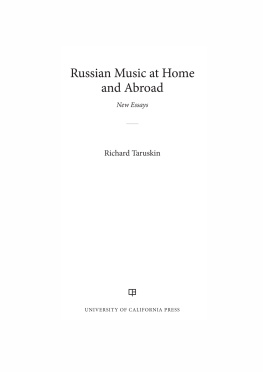
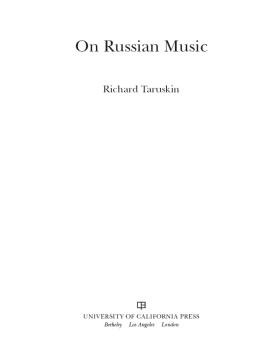

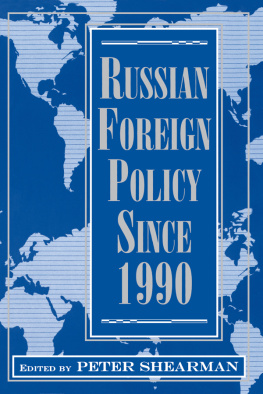
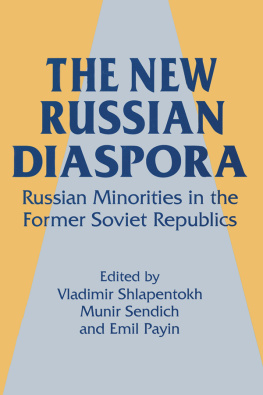
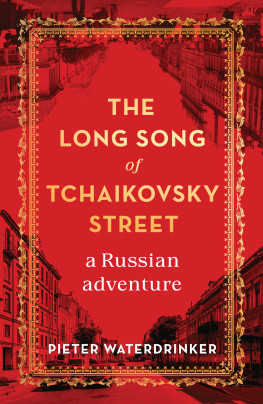
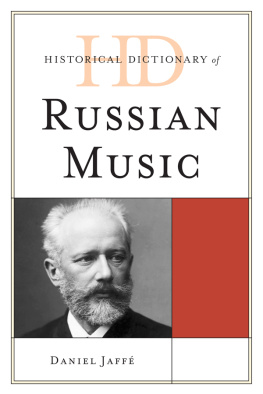
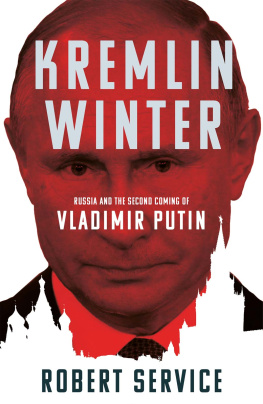
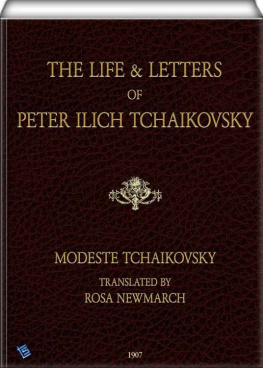




 ), have left the posts from which they used to commission my work. At the same time, now that my beard is grey, the frequency with which I have been invited to address scholarly conferences, often as keynoter, has greatly increased. Most of the pieces collected herein are contributions of that kind, or chapters in multiply authored scholarly booksthe print version of conferences. Keynote addresses are as much an entertainment genre as a scholarly one, so I had plenty of incentive to keep the prose livelylivelier, in fact, than the versions printed here, which have been adapted for publication and as a rule amplified as well as annotated. Because most of these pieces were not previously published, they do not have receptions to report, and so I have supplied only one updating postscript of the kind that was so abundant in On Russian Music (it is appended to essay 4, which was, as an exception, provocative and polemical as in the old days, and has had an afterlife).
), have left the posts from which they used to commission my work. At the same time, now that my beard is grey, the frequency with which I have been invited to address scholarly conferences, often as keynoter, has greatly increased. Most of the pieces collected herein are contributions of that kind, or chapters in multiply authored scholarly booksthe print version of conferences. Keynote addresses are as much an entertainment genre as a scholarly one, so I had plenty of incentive to keep the prose livelylivelier, in fact, than the versions printed here, which have been adapted for publication and as a rule amplified as well as annotated. Because most of these pieces were not previously published, they do not have receptions to report, and so I have supplied only one updating postscript of the kind that was so abundant in On Russian Music (it is appended to essay 4, which was, as an exception, provocative and polemical as in the old days, and has had an afterlife).